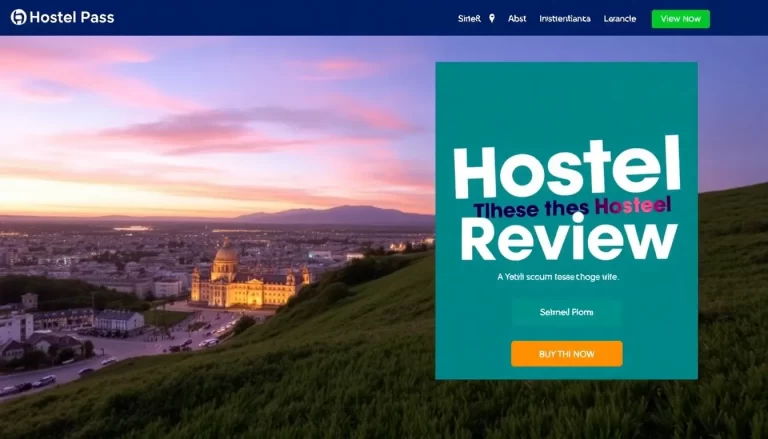The COVID-19 pandemic has significantly reshaped how we perceive travel insurance, revealing both its strengths and its limitations. Many travelers were caught off guard by the reality of what their policies actually covered during such unprecedented times. Understanding the ins and outs of travel insurance is essential for anyone planning to explore the world, especially in a post-pandemic landscape.
As travel resumes, it’s crucial to familiarize yourself with the specifics of travel insurance policies. This knowledge can turn a potentially stressful situation into a manageable one, ensuring you’re adequately protected against unexpected events that may arise while traveling. In this article, we will dive deeper into what travel insurance is, the types of coverage available, and key considerations you should keep in mind before your next trip.
Understanding travel insurance
Travel insurance is fundamentally designed to provide coverage during emergencies that may occur while you are away from home. This can include a variety of scenarios, such as:
- Medical emergencies, including hospital visits or evacuation.
- Trip cancellations or interruptions due to unforeseen circumstances.
- Loss or theft of personal belongings.
- Emergency assistance services, like travel support and logistics.
It’s essential to note that travel insurance is not a replacement for your regular health insurance; rather, it serves as an added layer of protection specifically for travel-related incidents. Often, travelers have misconceptions about the extent of coverage, assuming it will cover all situations. This misunderstanding can lead to disappointment when claims are denied due to specific exclusions, such as pandemics.
What does travel insurance typically cover?
The coverage provided by travel insurance can vary greatly depending on the policy and provider. However, most policies are likely to cover:
- Medical emergencies: If you fall ill or get injured while traveling, your travel insurance can cover hospital expenses or medical evacuation.
- Trip interruption or cancellation: If an emergency forces you to cancel your trip or cut it short, you may be eligible for reimbursement.
- Lost or stolen belongings: Coverage may extend to personal items that are lost or stolen during your trip.
- Emergency assistance: Many policies offer 24/7 assistance services to help you navigate emergencies.
However, be aware that many policies may exclude coverage for events related to pandemics or pre-existing conditions. Always read the fine print to understand the specifics of your coverage and any potential limitations.
Does travel insurance cover sickness during the trip?
While travel insurance provides coverage for sudden and unexpected medical emergencies, it typically does not cover pre-existing conditions or routine medical care. If you suffer from a chronic illness or have ongoing health issues, it’s important to check your policy for specific exclusions. In the case of an unexpected illness, such as a sudden fever or injury, travel insurance can provide critical support. Here are a few tips:
- Keep emergency contact numbers handy: Store your insurance provider’s emergency hotline number on your phone.
- Document everything: Keep all receipts related to medical treatment, as you may need these for your claim.
- Report emergencies promptly: Notify your insurance provider as soon as possible to facilitate a smoother claims process.
What to do if you are robbed while traveling
Experiencing theft while traveling can be distressing, but having travel insurance can help mitigate the financial impact. If you find yourself in this situation, follow these steps:
- File a police report: This is a crucial step in your claims process.
- Document lost items: Keep records of what was stolen, including receipts and photographs if possible.
- Contact your insurance provider: Inform them of the theft and provide any necessary documentation for your claim.
However, be aware that most policies have limits on the amount they will reimburse for stolen items, especially when it comes to cash and high-value possessions.
Coverage during company bankruptcies
Travel disruptions can occur when airlines or tour companies go bankrupt. In such cases, some travel insurance policies may offer coverage through trip cancellation or interruption clauses. Here are some key points to consider:
- If you booked your trip and the company went bankrupt, you might be eligible for reimbursement.
- Check your policy for specific conditions regarding company bankruptcies.
- Keep records of all transactions and communications with the affected company.
It’s important to note that not all policies provide the same level of protection, so reading the terms of your policy is crucial.
Claiming refunds for unused policies
If your trip is canceled before you begin your travel, you may be eligible for a refund on your travel insurance policy. Many providers offer a short review period after purchase during which you can cancel without penalties. Keep these guidelines in mind:
- Check for the review period: Typically lasts 7 to 14 days from the date of purchase.
- Understand cancellation policies: Once outside the review period, refunds may not be available.
- Consider shorter terms: Some travelers prefer purchasing policies in shorter increments to maintain flexibility.
However, be cautious if you have pre-existing conditions, as switching policies could complicate coverage.
Traveling home due to safety concerns
Many travelers faced difficult decisions during the pandemic, particularly when advised to return home. If you choose to return home for safety reasons, the coverage available to you may depend on the specifics of your policy. Here are some factors to consider:
- Look for a policy without a pandemic exclusion to determine if you can claim trip interruption benefits.
- Check your policy for specifics on non-refundable purchases and eligibility for claims.
- Contact your insurance provider before making any decisions to clarify your coverage.
Understanding the nuances of your policy is critical when making such decisions.
COVID-19 and travel insurance coverage
As the pandemic continues to impact travel, many insurance companies have adapted to provide some coverage related to COVID-19. Here’s what to know:
- Most traditional travel insurance plans exclude pandemic-related coverage, but some providers are beginning to offer it.
- Companies like Allianz and SafetyWing now offer limited coverage for medical costs associated with COVID-19.
- Always read the fine print to understand the extent of coverage, including any limitations or exclusions.
With the travel landscape constantly evolving, staying informed about these changes is vital for a safe and enjoyable trip.
Are credit card protections enough?
Many travelers rely on the protections offered by their credit cards. While this can provide some coverage, it often falls short, especially in serious situations. Consider the following:
- Credit card insurance typically covers lost luggage or trip cancellations if booked with the card.
- Limitations on medical expenses are often minimal, making it risky to rely solely on credit card coverage.
- Always check the specific benefits your card offers to avoid being underinsured.
While credit card protection is a helpful backup, it is not a substitute for comprehensive travel insurance when traveling abroad.
Key takeaways for travelers
Travel insurance is a complex subject, but understanding its importance can save you a considerable amount of stress and money during emergencies. As travel resumes, consider these essential tips:
- Always read the terms and conditions of your policy thoroughly.
- Be aware of any exclusions, particularly regarding pandemics and pre-existing conditions.
- Research different insurance providers to find the best coverage options for your needs.
Investing in a robust travel insurance policy is a critical step in safeguarding your travels, ensuring peace of mind, and allowing you to enjoy your adventures without unnecessary worry.







